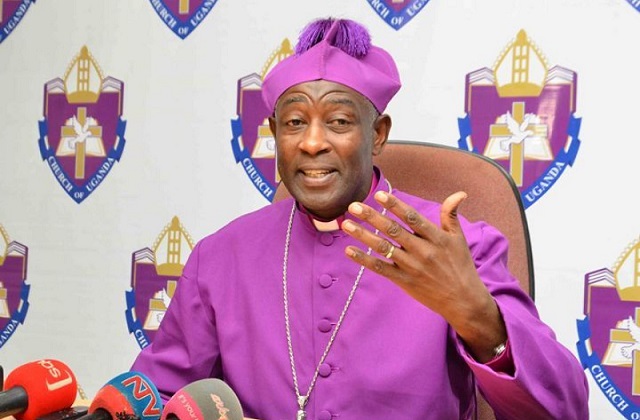Will you get different care by going to a doctor who is a professed Christian? How should a believer practice medicine?
I’ve worked in the medical community for 15 years. My colleagues are good doctors, by and large. Medicine has a lot of standard procedures—how you treat blood pressure, diabetes or chronic illnesses—and, for the most part, you will likely get technically similar care no matter where you go.
But there’s a developing culture within medicine that should concern us—one that lacks a Christian worldview on end-of-life issues, prenatal care and sexual “identity.” It’s coming to the point that Christians must walk wisely in deciding whom they trust with their care.
When looking at the history of Christian health care, the best place to start is Christ, “the Great Physician.” Christ’s ministry was saturated with miracles and healing the sick and downcast. When Christ healed, he healed holistically, treating both symptoms and souls. Throughout his ministry, Christ placed an emphasis on the poor, orphans, widows and social outcasts.
It’s important to notice that, when Jesus healed, the healing was accompanied by repentance and obedience. Many times, He required that his patient “get up and walk” and leave their sins behind.
In caring for the “least of these” (Matthew 25:40), Christians over the last two millennia developed hospitals, which originally were monasteries seeking to take care of the sick and dying on the streets. Look around and you will see hospital names that still point to this Christian beginning, whether Providence Hospital or St. Francis (places of excellence where I was fortunate to train) or the many St. Lukes and Good Samaritans. Our modern understanding of science grew out of the Reformation and Renaissance, when faithful men studied a well-designed world as an act of worship to the Creator.
Put all of this together and you find a compassionate heart for the world, to bring the very best care to the bodies and souls of the lost, broken, sick and ill.
But somehow, as we’ve followed the current of culture and science, we’ve lost that Christian foundation. By attempting to give medical care without a Christian basis, our doctors have begun to hurt instead of heal.
- Medicines traditionally used for pain relief are being used in overdoses for physician-assisted suicide. Instead of healing, death is offered to the elderly and broken.
- Ultrasounds are also being used to identify twins or a baby’s gender and then to urge parents to abort.
- Our deep understanding of human physical development is now being turned on its head and used to block puberty with powerful hormones in children who are suffering from sexual identity issues.
- The same surgical skills used to treat women who have had breast cancer or people disfigured by traumatic accidents are being used to remove functioning sex organs and to disfigure healthy men and women.
- Some of those counseling younger patients with serious illnesses are encouraging them in some cases to give up life-sustaining treatment.
- Adolescents are regularly separated from their parents with the express purpose of providing sex education behind closed doors.
This developing broken medical culture is causing many Christian believers to ask, “Should I even continue to see medical doctors? Can I trust them?”
Clearly, we need reformation in medicine. But it must begin with faithful Christians “speaking truth in love” (Ephesians 4:15).
Christian doctors, are accountable to God for every word and deed. This accountability should grow humility and cause to seek God in His glory. Fundamentally, believe that life is a gift rather than a curse, a presupposition that leads to approach medicine completely differently. We know that our value as humans comes from being unique creations, made in the Image of God. This drives to protect the vulnerable, to work to preserve and extend life and to overflow with gratitude.
When Christian doctors recognize that they are accountable to God, caring for patients made after God’s image, and are seeking wisdom in God’s Word on how to walk, they cannot help but have a different world view, one which causes them to practice medicine in a very distinct way.
A Biblical world view gives a doctor a correct understanding of illness and death. God’s Word tells us that illness comes from living in a world broken by sin. God, in his Grace, allows us to understand the body and reduce suffering here and now. And yet we also know that this is not our final home, which gives us a truly hopeful perspective on end-of-life issues.
Christian doctors should be very different when it comes to children. The Bible is clear that children are a gift from God. They are a heritage from the Lord, a reward. But we live in a world that believes children are a curse and a burden. In our office, we greet families with joy when they announce they are going to have a new child no matter the circumstance. We treat children as a blessing and encourage parents to see it that way, too.
Furthermore, physicians who are believers also recognize that a large portion of mental illness comes from the consequences of unresolved sin and broken relationships. For a doctor to address symptoms without also addressing a heart issue is like putting Band-Aids on a festering wound. For instance, we should treat depression with a whole-person approach, recognizing that depression is sometimes the result of a broken relationship with God. To have a perfect understanding of how sin can be rottenness to the bones and how only God can bring hope and healing in that circumstance is a remarkable joy to share.
A Christian approach to health care is one that values life, respects the way God created people, and seeks to heal people the way they hurt, both body and soul.
So what we can do?
We can flood medical schools with Christian students. We can start our own practices. We can seek to heal like Christ.
SIDEBAR
A “Checkup” for your Family Doctor
Questions to ask your doctor to understand their worldview:
- If a member of my family (i.e., teenager, older mom of six) had an unexpected pregnancy, what would your first response be? What advice would you give?
- If I have a terminal illness and asked for a medication to end my life, how would you handle this request?
- A friend of mine comes to you for help with depression. Who would you recommend as a counselor? Would you encourage my friend to counsel with a pastor?
- My 12-year-old child is struggling with gender confusion. How would you advise our family?
Do you have an opinion? you can write to [email protected] or through our social media accounts






































Discussion about this post